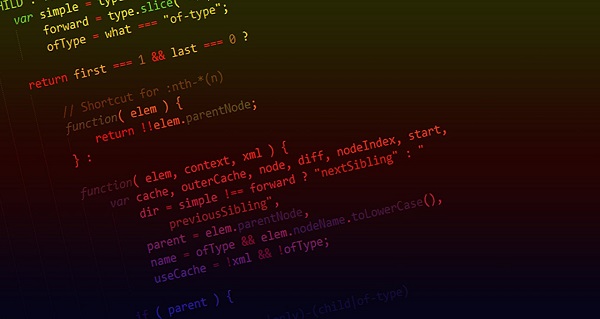If you want to study human-computer interaction – one of the highest-paying master’s degrees – and work in this field, then you’re going to need strong computer skills. Professionals in the different career roles that make up the field of human-computer interaction use a variety of different computer programs for different purposes. Two of the most important types of computer programs to know for this career path are programming languages and design software programs.
What Amount of Technical Computer Skill Do You Need to Get Accepted?
The first thing you should know when considering a future in human-computer interaction is that you don’t necessarily need a lot of technical knowledge to get into graduate school in this field. Although computer science is an important part of the interdisciplinary subject of human-computer interaction, most programs don’t require students to have majored in computers. Some students come to the field of human-computer interaction from the other, less technical disciplines related to this area of study, like visual design or psychology. Other applicants to master’s degree programs in human-computer interaction are career changers coming from an entirely different undergraduate major.
This isn’t to say that having knowledge of different computer programs won’t help you in your education or your career path, but don’t worry if you enter the graduate program with minimal familiarity with the relevant computer programs. Throughout your curriculum, you will have the chance to learn these programs and grow your skills in using them.
The lack of prerequisite course requirements in computer science is one of the aspects that sets a master’s degree in human-computer interaction apart from a master’s in computer science. However, each school may have its own set of perquisites for each program.
Computer Programming Languages
IMAGE SOURCE: Pixabay, public domain
If there’s one type of computer skill that you should try to develop familiarity with before you enroll in a human-computer interaction program, it’s coding. While some HCI professionals concentrate more on computer hardware rather than software, knowing the basics of computer programming is an important skill to have when you work with computers or technology. Different programming and development languages are used in different applications and for different functions.
Professionals in human-computer interaction, including Web and digital interface designers, human factors engineers and ergonomists, computer systems analysts and computer and information research scientists, often use both object- or component-oriented development software and Web platform development software, O*NET reported. The most widely used object- and component-oriented development software programs in this industry include Oracle’s Java, C#, Perl (practical extraction and reporting language), jQuery, Scala, Objective C and ABAP (advanced business application programming).
Web platform development software programs and languages that are commonly used in the field of HCI include JavaScript, HTML (hypertext markup language), CSS (Cascading Style Sheets), PHP, Backbone.js, React, Microsoft ASP.NET Core MVC, AJAX, and Google AngularJS, according to O*NET.
You can learn programming skills through an undergraduate elective course, as a non-program student at your local community college or through an online class in the subject.
Programs for Design
Design is a lot more than just programming, especially as it pertains to the field of human-computer interactions. Professionals in this area use different programs and tools to create multimedia content that improves usability and to develop the hardware and software components of the user interface.
For starters, design work in human-computer interactions sometimes involves the use of graphical user interface development software. These programs typically use drag-and-drop design systems to allow the designer to rearrange and edit the content they are working with in a visual format that resembles its finished appearance, rather than in strings of code. Altia Design GUI Editor and Seeing Machines faceLAB are among the graphical user interface development programs most widely used by human factors engineers and ergonomists, according to O*NET.
When it comes to multimedia content, human factors engineers and web and digital interface designers often use programs to create and edit still images and videos. Adobe Photoshop remains a popular photo and image editing program, but other popular software programs for this purpose include Adobe Illustrator, Trimble SketchUp Pro, SmugMug Flickr, Microsoft Visio, JamBoard and Open Graphics Library, O*NET reported. For video creation and editing, TechSmith Camtasia is the most widely used software program among human factors engineers, while web interface designers are more likely to use YouTube, Adobe AfterEffects, Screencastify and Flipgrid, according to O*NET.
Computer-aided design (CAD) software programs are also among the technological tools human factors engineers and ergonomists valued. Dassault Systemes’ multi-platform 3D design program CATIA is a CAD program human factors engineers use, O*NET reported.
Additional Resources
How Does Interface Design Work With a Degree in Human-Computer Interaction?

